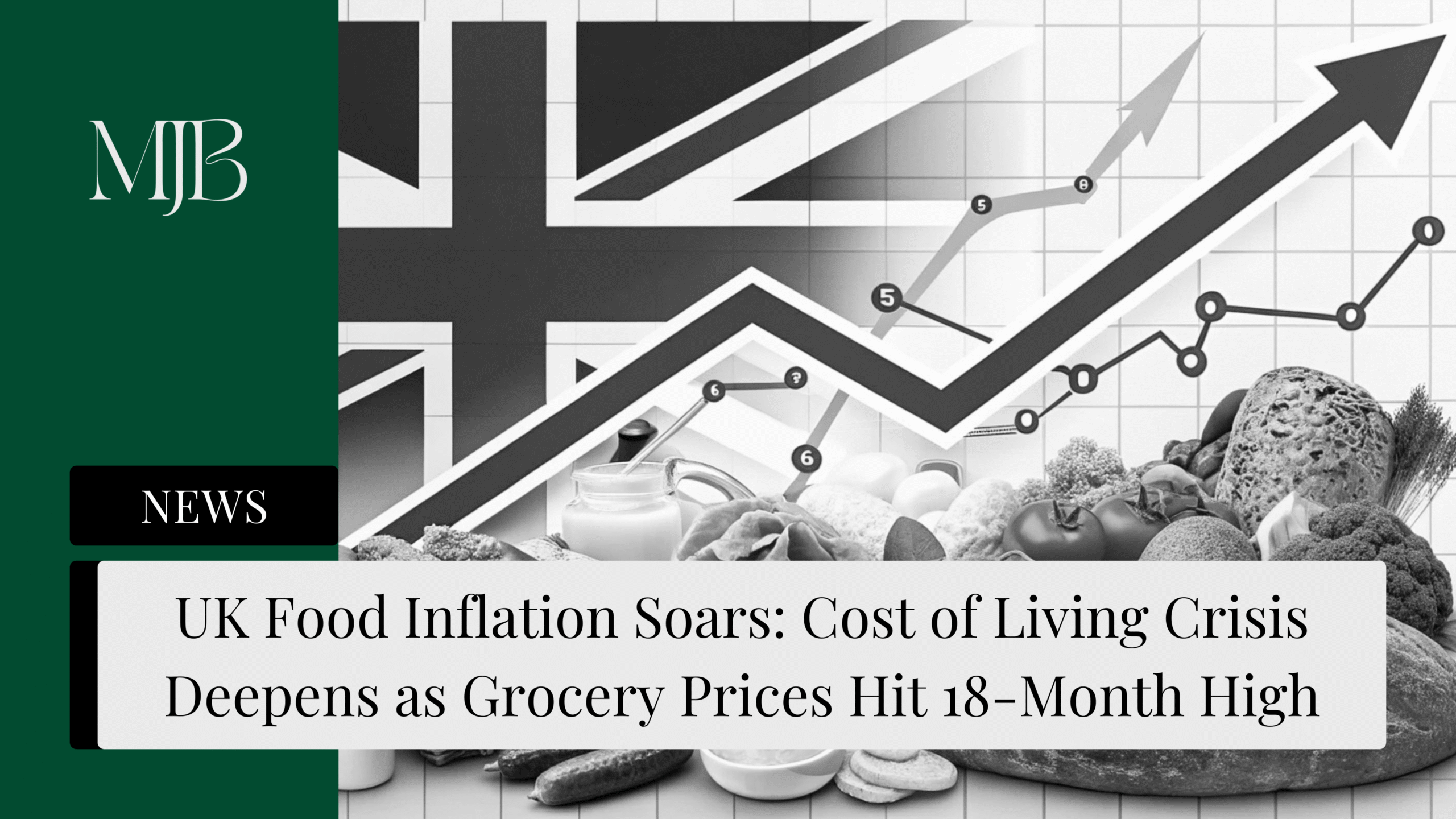Remember when a chocolate bar didn’t cost as much as a small coffee? Those days are getting further behind us as the UK cost of living crisis intensifies. UK food inflation just jumped to 4.2% in August 2025—the highest food price increases we’ve seen in 18 months, according to the British Retail Consortium (BRC). Rising grocery prices for chocolate, butter, and eggs are leading the charge, hitting household budgets and family finances where it hurts most.
With food costs rising faster than wages and energy bills remaining high, British families are facing tough choices at the checkout. Here’s what’s driving your grocery bills higher and what food price inflation means for household spending during this ongoing cost of living squeeze.
What’s Causing UK Food Price Increases in 2025?
The BRC-NIQ Shop Price Monitor data paints a clear picture: UK food costs are accelerating faster than we’ve seen since February 2024. Fresh food inflation jumped from 3.2% to 4.1% in just one month, with dairy price increases taking the biggest hit.
But the kicker—it’s not just one thing driving grocery prices up. We’re dealing with a storm of factors that UK retailers can’t easily control.

The Real Causes Behind UK Grocery Price Inflation
National Insurance Hikes Impact Food Costs
The Bank of England called it out—April 2025’s national insurance increases added £7bn in new costs for UK retailers. Helen Dickinson, BRC chief executive, warns this creates “an uphill battle for retailers” trying to keep food prices affordable.
Weather and Supply Chain Disruptions
Global supply chain disruptions and seasonal weather conditions are hammering food production costs. When chocolate price increases hit due to weather in West Africa, British shoppers feel it at their local supermarket.
Post-Holiday Price Adjustments Hit UK Shoppers
Those summer sports-event promotions are over. As British families return from holidays, retailers are ending the deals that kept some grocery prices artificially low during peak summer months.
How Rising Food Costs Affect UK Family Budgets
UK shop price inflation hit 0.9% in August 2025 overall, with food price rises driving the increase despite non-food items actually falling 0.8%. More than 60 UK retail bosses—including chiefs from Tesco, Sainsbury’s, and Boots—warned Chancellor Rachel Reeves that further tax hikes could worsen grocery price inflation.
They’re predicting UK food and drink inflation could reach 6% by year-end 2024. Translation? Your weekly grocery shopping costs are about to get even more expensive.

The Bottom Line on UK Food Price Inflation
UK families already stretched by cost-of-living pressures are facing another financial squeeze from rising food costs. While British retailers say they’re doing everything possible to limit grocery price increases, the economic maths is working against consumers right now.
The good news? You’re not powerless. Now’s the time to reassess your household budget and UK grocery shopping habits before food prices potentially climb higher.
FAQ: UK Food Inflation and Grocery Price Increases Explained
Q1: Why are chocolate and butter prices rising in the UK?
A: Global supply chain disruptions and weather conditions affecting production are key drivers. UK dairy prices specifically jumped due to seasonal factors and increased operational costs for British producers.
Q2: Will UK food inflation get worse in 2025?
A: British retail bosses predict food and drink inflation could hit 6% later this year. The £7bn in additional costs from national insurance changes are still flowing through the system, creating ongoing grocery price pressure.
Q3: Are all UK food categories seeing price increases?
A: Fresh food prices are seeing the biggest jumps at 4.1% inflation, while ambient (shelf-stable) UK food costs actually slowed to 4.2% from 5.1% the previous month.
Q4: How does UK food inflation compare to overall price rises?
A: UK food inflation at 4.2% is significantly higher than overall shop price inflation at 0.9%. Non-food items are actually experiencing deflation of 0.8% in British retail.
Q5: What can British shoppers do about rising grocery costs?
A: Focus on budget reassessment, compare UK grocery prices across retailers, and consider adjusting shopping habits. Many British families returning from summer holidays are already adapting to higher food costs.
DISCLAIMER
Effective Date: 15th July 2025
The information provided on this website is for informational and educational purposes only and reflects the personal opinions of the author(s). It is not intended as financial, investment, tax, or legal advice.
We are not certified financial advisers. None of the content on this website constitutes a recommendation to buy, sell, or hold any financial product, asset, or service. You should not rely on any information provided here to make financial decisions.
We strongly recommend that you:
- Conduct your own research and due diligence
- Consult with a qualified financial adviser or professional before making any investment or financial decisions
While we strive to ensure that all information is accurate and up to date, we make no guarantees about the completeness, reliability, or suitability of any content on this site.
By using this website, you acknowledge and agree that we are not responsible for any financial loss, damage, or decisions made based on the content presented.






